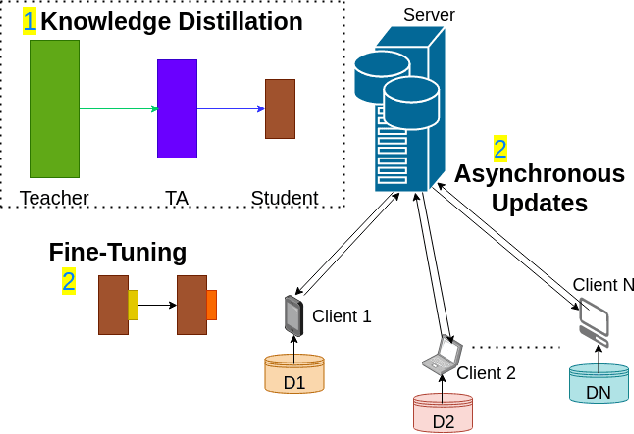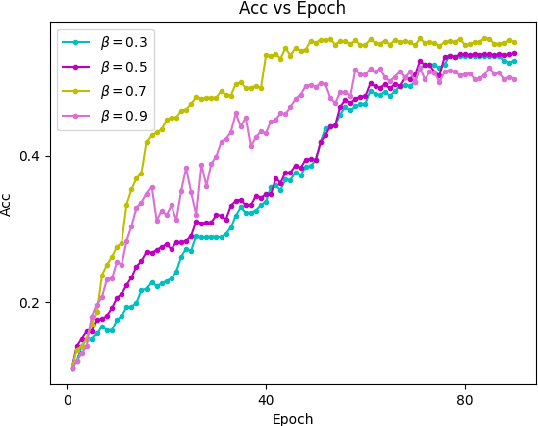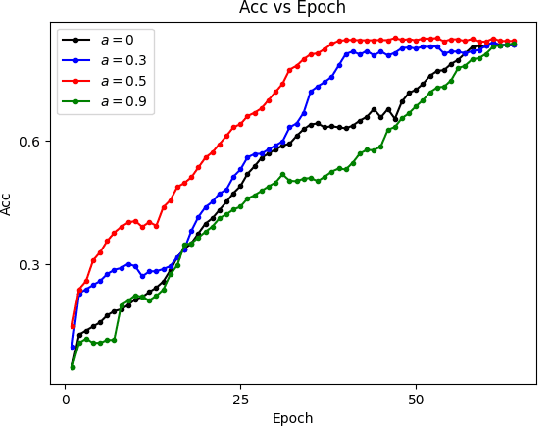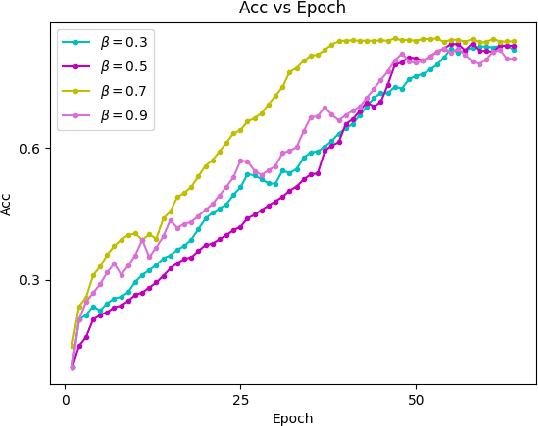Federated Action Recognition on Heterogeneous Embedded Devices
Paper and Code
Jul 18, 2021



Federated learning allows a large number of devices to jointly learn a model without sharing data. In this work, we enable clients with limited computing power to perform action recognition, a computationally heavy task. We first perform model compression at the central server through knowledge distillation on a large dataset. This allows the model to learn complex features and serves as an initialization for model fine-tuning. The fine-tuning is required because the limited data present in smaller datasets is not adequate for action recognition models to learn complex spatio-temporal features. Because the clients present are often heterogeneous in their computing resources, we use an asynchronous federated optimization and we further show a convergence bound. We compare our approach to two baseline approaches: fine-tuning at the central server (no clients) and fine-tuning using (heterogeneous) clients using synchronous federated averaging. We empirically show on a testbed of heterogeneous embedded devices that we can perform action recognition with comparable accuracy to the two baselines above, while our asynchronous learning strategy reduces the training time by 40%, relative to synchronous learning.
 Add to Chrome
Add to Chrome Add to Firefox
Add to Firefox Add to Edge
Add to Edge